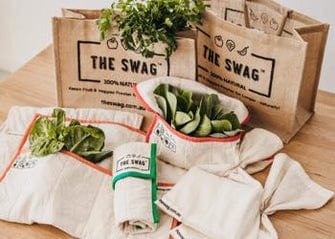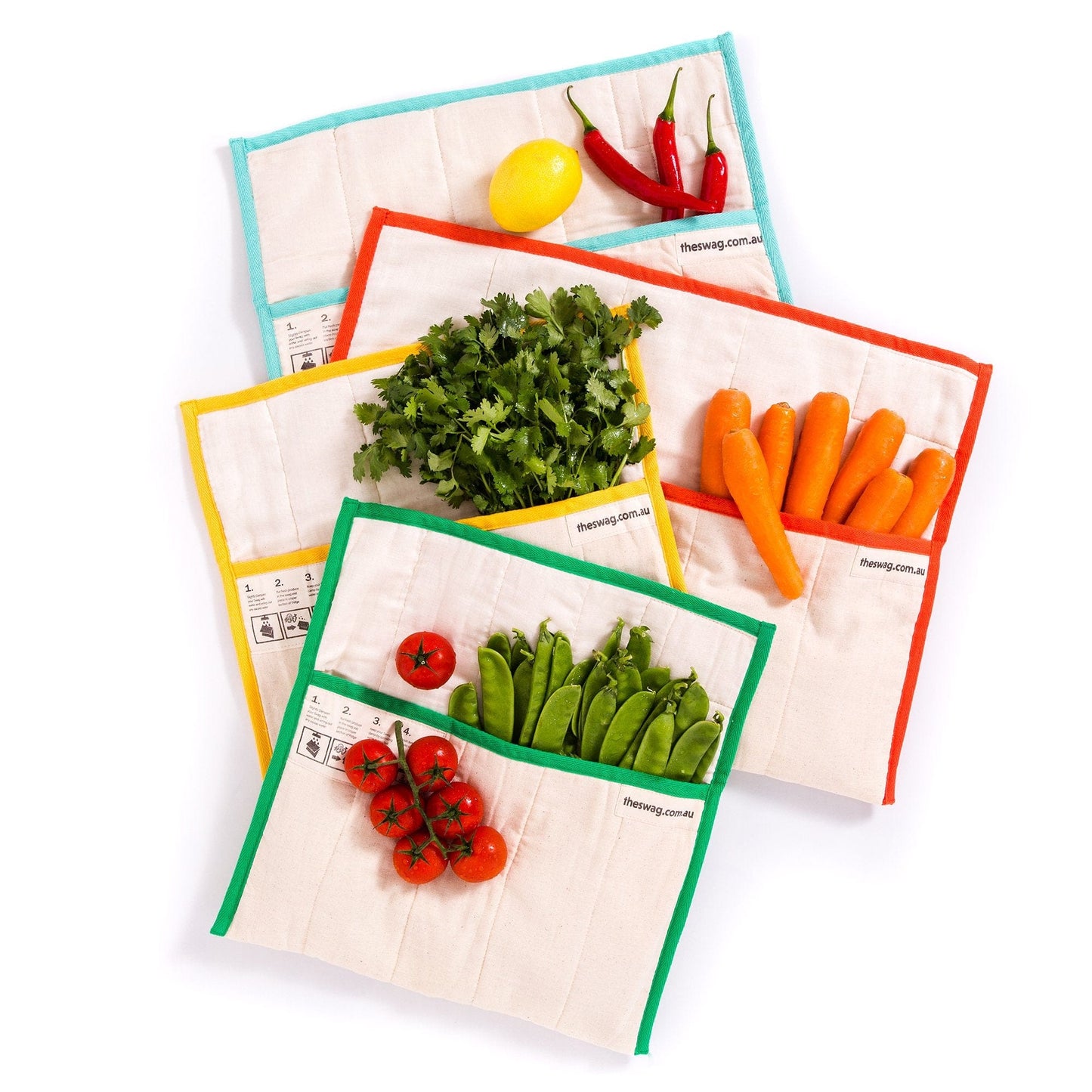As summer is just around the corner, many of us are itching to explore the great outdoors. And whilst COVID has us restricted to exploring locally, we feel pretty lucky to be in Aus right now.
Many of us have camping on the agenda, so it’s never been more important to be conscious of how we travel; leaving as little trace as we can, and when possible, leaving places visited in better condition than when we arrived. So to help you along the way, Cait, our newest member to The Swag team, and resident expert camper is sharing her top 5 leave-no-trace camping tips!
When it comes to camping gear, it's reusable, so I’m not about to tell you what tent or sleeping bag to pack ( plus whatever you don’t have - borrow!), I’m far more interested in ways we can lighten our impact on the environment.
When on the road, it’s so easy to grab things that are convenient for single use and/or wrapped in plastic. I spent three months solo, on the road, exploring some of the most incredible spots across East Australia, so it’s safe to say I have faced many of the issues you’d face on a short weekend trip, when it comes to zero-waste camping.
Here are the top 5 waste-free camping hacks that I struggled with on my first few trips that may be useful on your next conscious-camp adventure!
1. Ice, ice baby
Camping in summer means having cold beverages and food at the ready, but camping off grid makes that hard and plastic bags of ice makes zero-waste living impossible. So before heading off, get yourself organised and make your own reusable cooling tools, here are some simple ways to keep your esky cooler for longer (sans the single-use plastic!):
- Make your own ice blocks by filling reusable containers with water and freezing them ahead of time - the bigger the better (if you make ice with salty water it stays frozen longer)
- Freeze fresh water in water bottles (not salty so you can drink it later)
- Freeze meals you plan to eat while camping and use them as ice while they thaw out
- Get a good quality esky
- Keep the esky in the shade
- Wrap a wet towel around your esky to help it stay cool for longer
Shameless plug: I’ve also recently tried taking my Swag bags with me on the road. I was actually blown away with how effective they were in keeping my cut veggies fresh. I brought some of them home with me and they are still fresh and crunchy a week later! You can grab yours here.
2. Water is LIFE
You’ll need water to drink, cook with and clean with. The easiest way to avoid single-use plastic waste is by bringing along your own reusable water canisters. Depending on how many people you are with, and how long your trip is, will depend on how much water is needed.
I usually bring 65L (2 x 25L and 1 x 15L canisters) and that works well for me (and my dog) for a long weekend, without having to refill. But learning this was the right amount took some trial and error.
Fill your canisters up at home before you leave on your trip - and then throughout the trip, fill them up at truck stops, petrol stations, parks and campsites (where it's available). You should always be aware of your closest water source to refill. Also, having a canister with a tap is very useful for washing hands, cleaning and filling water bottles etc. and avoids water waste!
3. Scrap it
Take a dedicated bucket for food scraps and waste you collect while camping and compost it! I’ve witnessed a lot of campers throw food scraps into the bush, thinking it will decompose or an animal will eat it. Both of these things are true, but it’s actually not the best way to dispose of food, especially if you’re in national parks or areas that are regenerating. Natural ecosystems are sensitive!
Another tip is once again, get organised and prep as much as you possibly can at home! Chop and peel your produce ahead of time so that you can utilise your compost at home rather than having to carry it around with you.
4. Trash talk
Allocate another box/container to collect any recycling you create so you can dispose of it properly in a recycling bin. If you’re in a different state check if they have a container deposit scheme and you could deposit your recycling for a few cents!
5. Scouts honour
I have a golden camp rule (also a scouts rule!): always leave your camp cleaner and in better condition, than when you arrived. I do this by taking at least 10 pieces of rubbish from my campsite and/or surrounding sites.
When traveling or camping, your main goal should be to adventure with minimal impact. Be aware of how your camp has lasting effects on the environment around you. Choose spots that are designated - or have obviously been used prior - and stay within the obvious camp zone to avoid flattening and damaging natural environments.
As you start planning your next camp or hiking adventure, ensure you’re doing your bit to look after what this great country has to offer. All it takes is a bit of planning, trial and error and mindfulness.
Happy camping, Swaggers! 🏕



